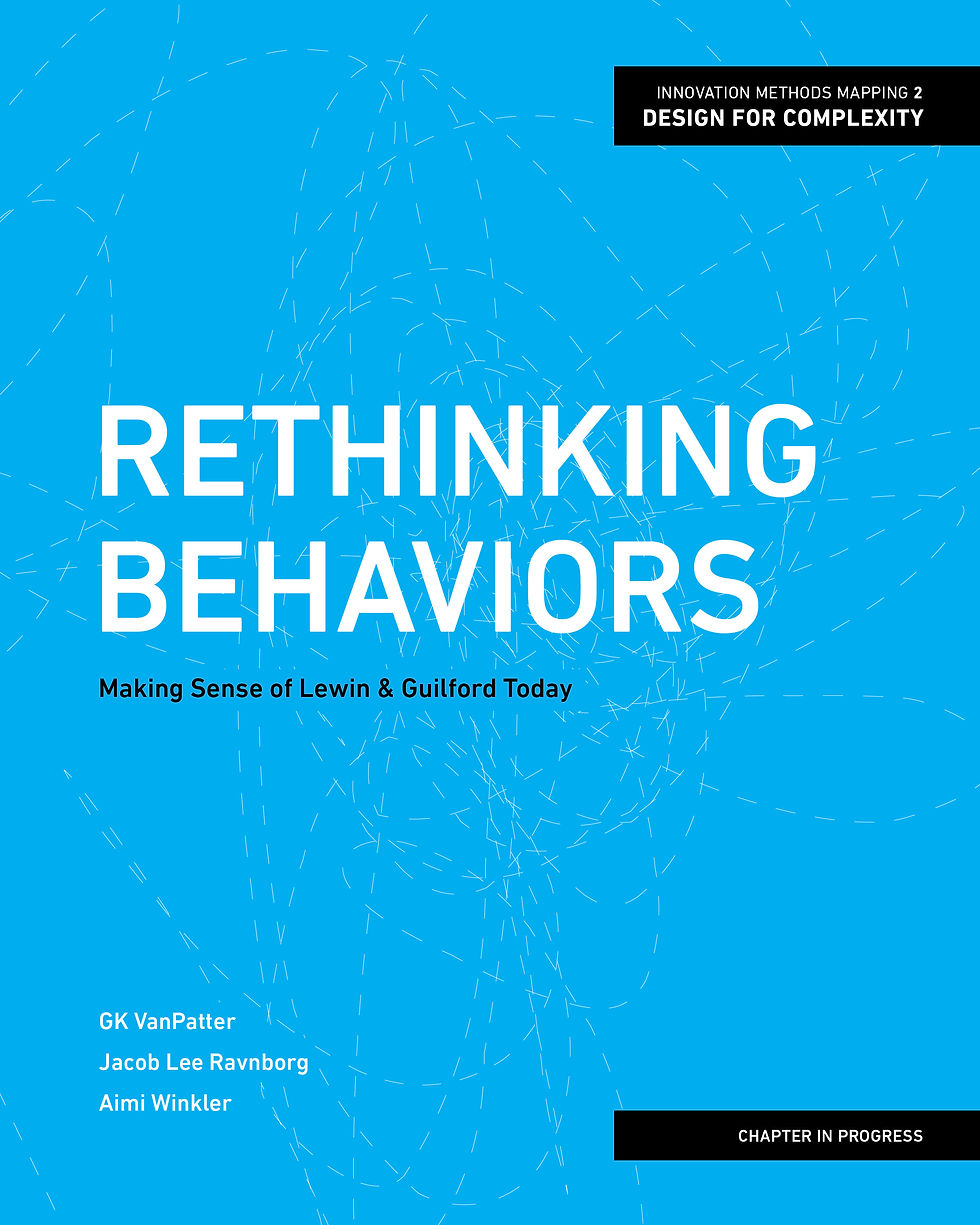Framing the Opportunity Space
- gvanpatter
- Nov 29, 2022
- 2 min read

Giant Opportunity
Reading the recent NextD Journal Peer Review of the Design Council Report “Systems-Shifting Design” and some of the recent posts on the subject of systems thinking meets design I came away with the sense that there is probably considerable lack of understanding regarding where Design For Complexity might take place, where it is aimed.
To add a little more context here; Let’s not forget that there is a lot of opportunity and responsibility space between well-known, world-peace sized problems and the current fixation of Design Thinking that assumes everything is a product, service or experience problem. GIANT OPPORTUNITY SPACE IN BETWEEN THERE!
The complexity arenas of organizations and societies contain a vast diversity of challenges, many of them are not framed and so the need for Open Challenge Framing capacity has accelerated. Lets not be assuming that all the problems have been identified and are sitting on the table. That's the wrong starting point for many complex issues. Knowing upfront, assuming up front is not the condition that many engaged in organizational and societal changemaking will be facing on the road ahead.
The working definition of Design For Complexity that we have so far is that it contains no upfront assumptions that the challenges are fully known in advance. You might end up in any one of numerous different outcomes but the difference between Design Thinking and Design for Complexity is that your methods do not begin with product, service or experience assumptions. It's been known for some time that such assumptions don't make any sense in the context of organizational and societal complexities.
Lots of methods related details need to be thought through. It is already known that Root Cause Analysis does not create systemic pictures of challenges and it is presently debatable whether systems thinking contains such capacity. In the big picture practice sense there are already numerous different calibrations regarding the role systems thinking is capable of playing, what it lacks etc. Not everyone involved in Design For Complexity practice subscribes to systems thinking driving the train. There is not one calibration of systems thinking but many.
Hope this is helpful.
Related Previously Published:



Comments